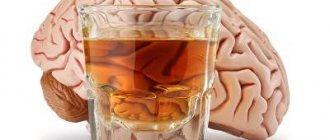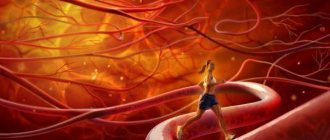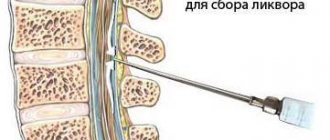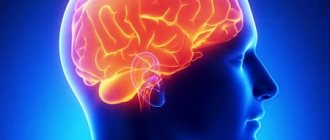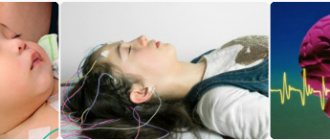Today, smoking is the most common harmful human habit, which is being combated at the state level. After all, the harmful substances contained in tobacco leaves have an active effect not only on the person who smokes, but also on his environment. This applies to almost all body systems: the central nervous system, digestion, respiration and cardiovascular system.
The effect of smoking on the blood vessels of the brain is especially dangerous in adolescence, as it causes mental retardation and is an activator of the development of central nervous system pathologies.
How does nicotine affect brain activity?
The biological mechanism of action of the alkaloid is due to its ability to interact with H-cholinergic receptors, which are located in cholinergic nerve synapses. Under the influence of nicotine, acetylcholine receptors in the human brain are activated, which causes increased production of epinephrine and the release of adrenaline and norepinephrine into the blood.
After smoking, the emotional background changes, and an imperceptible feeling of excitement arises. Thanks to the fact that the smoker has finally satisfied his need for nicotine, after a cigarette it is easier for him to concentrate. However, this effect quickly wears off.
Effect of smoking on the brain
Quitting a bad habit
Complications from smoking are very high. In addition to cardiovascular diseases, a malignant tumor may develop, vision and hearing may decline. Your teeth will be damaged, you will experience a severe cough, rhinitis, etc. However, you can always stop and stop smoking. To do this, you need to follow some recommendations.
- Gather your strength and decide that smoking will no longer control your life.
- Start eating right. The diet must contain all nutrients, vitamins and microelements. It is worth protecting yourself from fatty, salty and spicy foods.
- Take additional medications in the form of vitamins to normalize the body after nicotine.
- Drink as much water as possible, the optimal amount is 2 liters per day. It will remove waste and toxins that have accumulated in the body over the entire period of smoking.
- Start playing sports. Exercise will strengthen the heart and blood vessels of the brain.
- Go outside and breathe fresh air as often as possible. Ventilate the room more often.
When a person stops and no longer smokes, the following changes will occur in his body:
- blood circulation will return to normal, which will have a beneficial effect on the elasticity of blood vessels;
- the chances of various diseases appearing will be significantly reduced;
- the level of oxygen in the blood will increase;
- the pressure will always be normal;
- appetite will appear, and taste buds will work in full force;
- breathing will be easy, runny nose and cough will go away after a while;
- healthy skin color will be restored;
- drowsiness will no longer bother you, the person will wake up every day in a good mood;
- all organs and systems will work without failures.
The effect of nicotine on the brain and mental abilities
Components of tobacco smoke affect all nervous functions. The central nervous system (CNS) is especially sensitive to nicotine. This applies in particular to brain cells.
Effect of smoking on the brain
Nicotine is similar in action to acetylcholine. The effect of tobacco on brain activity is to activate the production of stimulants in the body such as:
- norepinephrine (sharpenes attention);
- dopamine and serotonin (hormones of pleasure and good mood);
- glutamate (a neurotransmitter, with its help memory centers function and information is transmitted from the senses).
The effect of smoking on the brain in the form of a slight emotional outburst is due to an increase in the levels of dopamine and serotonin. The surge of strength is associated with a short-term dilation of blood vessels, after which they narrow again. This can cause signs of oxygen starvation: yawning, headaches, loss of coordination.
The effect of tobacco on a child's brain development is particularly destructive. In adolescents, the nervous system continues to actively develop. If you start smoking at this age, your child may develop central nervous system pathologies. Under the influence of nicotine, the functioning of the centers responsible for memory, speech and intelligence is disrupted.
How to quit smoking yourself at home?
The effect of smoking on human brain cells
Smoking a cigarette leads to impaired cerebral circulation. The cells of the central nervous system are deficient in oxygen and nutrients. This effect of nicotine on brain activity leads to impairment of intelligence (due to decreased activity of nerve cells), problems with concentration and attention. Smokers lose the ability to make quick decisions; they solve problems 20–25% slower than non-smokers.
How else does nicotine affect brain cells? Neurons and glial cells lose their ability to recover normally, which leads to the development of central nervous system diseases.
Nicotine negatively affects not only the development of the child. In adults, it causes diseases such as neuroses and various mental disorders.
The effect of smoking on brain vessels
Constriction of blood vessels is the main negative effect of nicotine. After the last puff, the spasm persists for another 10 minutes. Oxygen starvation leads to necrosis of nerve cells, which affects brain activity in general and a person’s intellectual abilities.
Constant narrowing of blood vessels manifests itself with symptoms such as:
- frequent headaches;
- noise in ears;
- dizziness;
- blurred vision;
- decreased memory, attention;
- deterioration in performance in general.
Smoking increases the level of cholesterol in the blood and the deposition of cholesterol plaques on the vascular walls. This leads to atherosclerosis.
In addition, under the influence of carbon monoxide, blood viscosity increases. It becomes thicker, which increases the risk of blood clots. It just seems like something harmless, but in reality it’s very serious. Suffice it to say that a blood clot in the brain is the cause of ischemic stroke.
Vascular spasm sharply increases blood pressure, which also threatens rupture of the vascular wall with hemorrhage into the brain tissue.
The effect of smoking on the human brain is an increased risk of encephalopathy (death of nerve cells due to hypoxia), atherosclerosis (which can lead to stroke), embolism (blockage of blood vessels with a blood clot). The impact of nicotine on a child's development is also extremely negative. Children become restless, irritable, sleep is disturbed, and there is mental retardation.
Smoking and intelligence
Smokers' opinions regarding the effect of nicotine on mental abilities are contradictory. Some supposedly increase attention and concentration, others honestly note the inhibitory effect of this “bad habit” - a consequence of poisoning with nicotine and toxins contained in cigarettes. If you feel heavy and ill after smoking, this is not surprising - the body “suffocates” and tries to cope with toxic substances. It’s just that some people tolerate it easier, while others bear it harder.
The effects of smoking on the brain and mental abilities have been studied by scientists. Experiments have shown that smokers have a decrease in such types of mental activity as memorization, speed and accuracy of crossing out letters, and accuracy of adding numbers.
A study was conducted at the University of Aberdeen (Scotland) to determine the relationship between smoking and intelligence. 465 volunteers aged 64 years were examined, of whom 50% were smokers. The tests assessed their intellectual abilities and memory.
Then the results of similar studies of the same people, which were conducted on them at the age of 11 years, were extracted from the archive. The analysis showed that test results among smokers are worse than among non-smokers. To a greater extent, negative changes affected the abilities of logical thinking and information reproduction. This demonstrated the negative effects of smoking on the brain in the long term.
Take the test and find out in a minute whether it will be easy for you to quit smoking
Take the test
Constriction and dilation of blood vessels
People often ask whether smoking narrows or dilates blood vessels. The harmful substance appears in all changes in the body. Nicotine oxidizes, and some of it comes out during urination. But carbon dioxide still manages to negatively affect the heart and blood vessels, after which their permeability becomes lower.
Therefore, we can conclude that smoking constricts blood vessels and negatively affects the brain, legs, heart and human health.
Reaction to tobacco smoke
Nicotine during smoking affects the blood vessels of the brain, limbs and heart. Smoke penetrates the body and passes through all organs and systems. The process of reducing blood vessels, which appears due to toxic elements, occurs in this way: nicotine affects the control center of blood vessels and stops it. At this time, a jump occurs, which narrows the walls of blood vessels and leads to a state of stress.
In this state, blood vessels cannot fully release nutrients into the body, which causes disruptions in the functioning of the circulatory system and increases blood pressure. Also, muscles and joints suffer from lack of air, and this leads to constant pain in the legs.
VSD when smoking
VSD causes severe pain in a person, so he tries to reduce it with the help of cigarettes. This method really helps, but not for long, just 10-20 minutes.
You need to understand that nicotine is a false pain reliever, because it gives a person a couple of minutes of relaxation, but in return takes a couple of days of life.
With vegetative-vascular dystonia, smoking is undesirable, since it negatively affects the heart, blood vessels and nervous system. This disease also has a great impact on the psychological state, brain and blood vessels. Vegetative-vascular dystonia has a negative factor that can significantly reduce a person’s life. If intoxication is added to all the signs, the consequences can be disastrous. Smoking is contraindicated in patients with VSD.
"Pros" and cons of the effect of nicotine on brain activity
People smoke because they sincerely believe in the positive effects of tobacco on the body and psyche; people believe in a huge number of false ideas about cigarettes, that they can supposedly be useful in some way. Among such imaginary advantages, the following are most often mentioned:
- nicotine helps cope with stress, nervousness, and calms;
- tobacco smoke helps control weight and stay slim, as it reduces appetite;
- smoking saves you from boredom and “reduces” waiting time;
- Nicotine helps you concentrate.
However, few people pay attention to the fact that after a smoke break, irritation and anxiety return and bother them even more. The temporary effect of increased concentration, associated with the release of a stress hormone, results in an increase in blood pressure and heart rate. And against the background of hypoxia, the smoker becomes lethargic and drowsy.
The disadvantages of smoking cigarettes are more objective and real:
- inhibition of brain function due to lack of oxygen;
- deterioration of memory and intellectual abilities;
- frequent outbursts of irritability;
- disturbance of psycho-emotional state;
- the negative impact of passive smoking on loved ones, especially on the child (developmental delays, headaches, sleep disturbances, etc.);
- formation of nicotine addiction;
- increased risk of developing diseases of the nervous system and circulatory disorders in the brain (atherosclerosis, stroke, neuropathy, neuroses, etc.);
- constant stress, feelings of shame and guilt for your addiction.
How to restore your brain after smoking?
Mechanism of action
The narrowing of the lumen of the arteries causes an increase in pressure. Experts define such surges as nicotine hypertension.
Nicotine enters the blood, spreads to all tissues and organs, and becomes a participant in metabolic processes. The residue, which is not excreted in the urine, accumulates on the vascular walls and tissues. At the very beginning, an increase in the lumen of blood vessels occurs, causing a feeling of relaxation in a person. However, after a few minutes these sensations are replaced by the opposite: the vessels sharply narrow. Such a difference is a strong stress for the body.
Nicotine is a substance that can pass through the BBB and affect the functionality of all organs. It has a stimulating effect on the vasomotor center. Speaking about whether blood vessels narrow or dilate when smoking, it is important to consider two stages of the effects of nicotine:
- Activation of cholinergic receptors and an increase in the diameter of the vascular bed, occurring against the background of bradycardia. This is a short stage, after which, under the influence of increased production of adrenaline, norepinephrine, and dopamine, changes in hemodynamics begin.
- The second phase is characterized by:
- development of tachycardia;
- increased cardiac output;
- increased blood pressure;
- vasoconstriction.
The intake of nicotine leads to a slowdown in the conduction of the sympathetic and parasympathetic pathways. The replacement of a feeling of satisfaction and euphoria with a loss of strength gives rise to the desire to smoke again. This is how addiction is formed.
How to restore your brain after smoking?
First of all, you need to give up cigarettes, and within just 3 days, nicotine will be completely eliminated from the body. The normal elasticity of the blood vessels supplying the brain is restored within 3–4 weeks.
You can help your body recover faster. Walking in the fresh air, moderate physical activity, eating fresh fruits and vegetables, and herbs are useful for this. Reading and solving puzzles have a beneficial effect on brain functioning. But even without additional manipulations, you will feel much better after quitting smoking, because the poisoning of the body will stop, each cell will begin to receive more oxygen, and the whole body will begin to come to life. And the brain first of all.
At the Allen Carr Center you can get help overcoming nicotine addiction. Give up the “bad habit” today and protect your intellect from destruction, and your personality from degradation.
Do you want to quit smoking easily?
Visit the free materials section
Quit smoking in 1 day
Select a convenient date for the “Easy way to quit smoking” course
Sign up for a course
Traditional recovery methods
If a person decides to control his health, then the first thing to do is stop smoking. This is necessary, otherwise medications and various techniques will not help cure emerging ailments.
To improve blood vessels and general well-being of a person, there are several methods of traditional medicine.
- Potato decoction. You need to boil 1 kg of potatoes in 5 liters of water. The resulting broth is filtered and waited until it cools. Take 2-3 times a day, 100 ml before meals. The duration of treatment is 2 weeks.
- Tea with milk. The tea is not too strong, 200 ml. Add 20-30 ml of milk to it. It is advisable that the tea be black. Use 5-8 times a day. Duration of treatment – 1 week.
- Porridge with lemon, horseradish and garlic. To do this, take 300 g of all components and grind them in a meat grinder. Then add 300 ml of warm water to the mixture and mix well. Eat porridge 1 tbsp. l. before meals 3 times a day. The course of treatment is 1 week.
In addition, fruits and vegetables should be included in the diet. You should eat only fresh foods and worry less.
In the morning and before going to bed, it is recommended to do light exercise and run short distances.
Chemical composition of cigarette smoke
When you smoke another cigarette, toxic chemical compounds enter the bloodstream. They not only cause vascular spasm, but also lead to the destruction of their walls and change the qualitative composition of the blood. The whole body suffers from this.
During the combustion of tobacco under the influence of high temperatures, complex chemical reactions occur, resulting in the formation of more than 400 toxic compounds.
- Nicotine. A highly addictive substance similar to a narcotic. Extracted from tobacco leaves, it has a mild sedative and analgesic effect. When ingested, it provokes vasospasm, releases cholesterol, and promotes the formation of plaques. Leads to cardiovascular diseases and brain stroke,
- Resins. They are released under the influence of high temperature, deposited on the skin, in the lungs and bronchi. Due to the fact that they envelop the surface of the respiratory tract with a thick film, the penetration of oxygen into the blood is disrupted,
- Cadmium, nickel, lead. Heavy metals that are considered toxic. Inhibits the functioning of many organs and systems, mainly the gastrointestinal tract and cardiovascular,
- Benzene. Potent carcinogen. Used in the chemical industry,
- Formaldehyde. Causes diseases of the stomach and lungs. Used for mummification of corpses,
- Carbon monoxide. Similar to what is emitted from car exhaust. Its danger is that it is lighter than oxygen. Once in the bloodstream, it displaces oxygen and combines with hemoglobin. Disruption of the functioning of all organs, systems and tissues of the body begins due to oxygen starvation,
- Arsenic. A potent poison that is used in the manufacture of poison for rodents,
- Acetone. A well-known substance used in the production of paint and varnish products, nail polish remover.
In addition to these substances, tobacco contains toluene, phenol, quinoline, acrolein, vinyl chloride and others.
Important! The substances contained in tobacco cause addiction. It is very difficult to get rid of it on your own.

